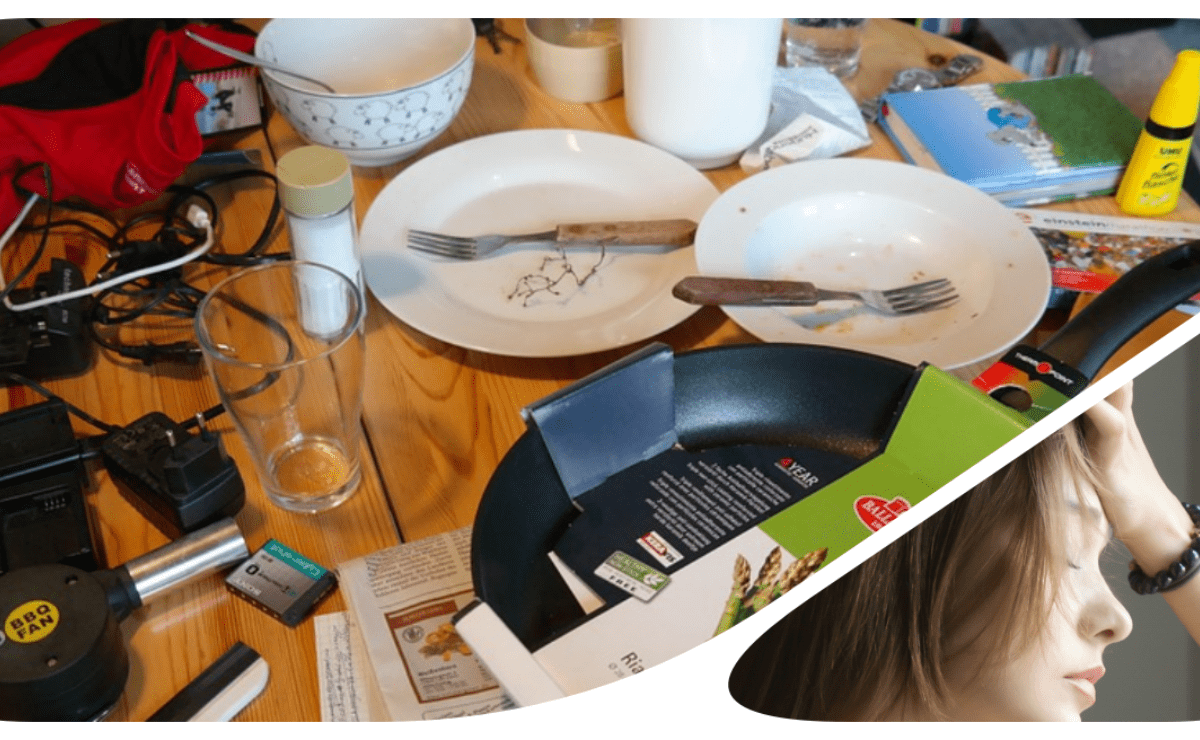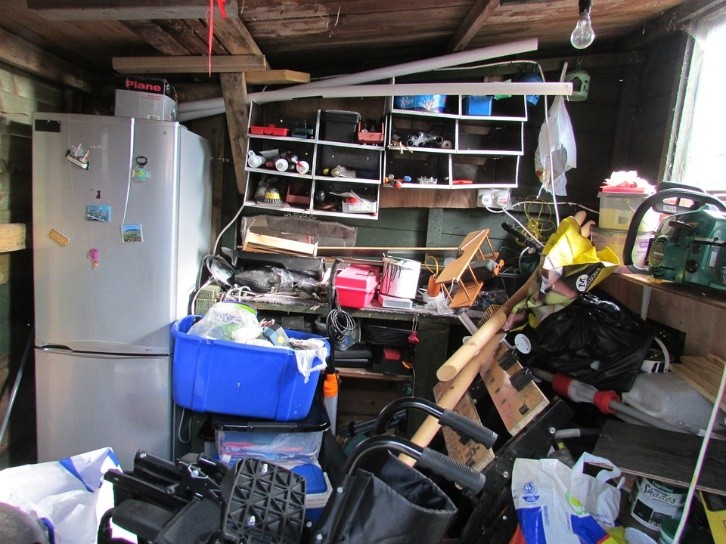
Ferrari argued that we don’t need most of the things we buy. "We have been told that our wants are needs"
Specialists say that when you start to accumulate things you start to feel stressed, hasn’t it happened to you that when you clean your room you feel liberated and in a better mood? This is because each space in our environment is fundamental in our development, emotional, psychic and physical. Discover how it worked to free you from that accumulation that sometimes you no longer know what to do with so many things.
Do you have a hoarding problem? If you have to move objects in order to finish a task in your home or office or if you feel overwhelmed by all your “things”, then it is a clear sign that accumulation has won the game. This may be causing you more stress than you think.

" Hoarding is the overabundance of possessions that together create chaotic and cluttered spaces in the home," said Joseph Ferrari, a professor of psychology at DePaul University in Chicago, who studies the causes of hoarding and its impact on emotional well-being. Researchers are finding that a crowded home can cause stress.
Ferrari was part of a research team that interviewed three groups of adults on hoarding and quality of life: college students; young adults in their twenties and thirties, and older adults, most in their 50s.
The authors assessed the willingness of volunteers to procrastinate, asking them to rate statements such as "I pay my debts on time" on a five-point scale, from strongly disagree to strongly agree. Procrastination is closely linked to hoarding, as ordering items and disposing of some of them is a task that many people find unpleasant and try to avoid. Filing important documents or searching for something on a table buried under mountains of books takes time.
The researchers also measured the participants’ overall well-being in relation to how hoarding might be affecting their lives. To this end, they were asked to assign a score to phrases such as "Hoarding in my home bothers me" and "I have to move things to be able to perform certain activities in my home."
The study, published in Current Psychology, found an important relationship between procrastination and hoarding problems in all age groups. Frustration from hoarding was found to increase with age. Among older adults, hoarding problems were also associated with dissatisfaction with life.
These findings add to growing evidence that hoarding can negatively impact mental well-being, especially in women. The accumulation can also induce a physiological response, including an increase in the levels of cortisol, the stress hormone.
A 2010 study published in the Journal of Personality and Social Psychology looked at marriages where both spouses worked, lived in Los Angeles, and had at least one school-age child. Wives who participated in the study and who found their homes to be overcrowded or in need of cleaning were prone to elevated cortisol levels throughout the day. Those who did not feel that their homes were crowded, who were the majority of the men in the study, had cortisol levels that were prone to decrease during the day.
Darby Saxbe, an academic assistant in psychology at the University of Southern California and lead author of the study, said that women who found their homes to be crowded or in need of cleaning started the day burdened and stayed that way until nightfall. Saxbe suspects that some of the added stress was related to women’s tendency to take over household chores and extra duties after a day’s work. He noted that when it came to cortisol levels, men who did more housework at night were just as likely to have elevated cortisol levels at the end of the day as women. The point is, not many men spend as much time doing housework as their wives, Saxbe said.
In a follow-up study, Saxbe tested cortisol levels during the evenings and nights, a time when stress would need to decrease to enter "adaptive recovery." Not all study participants were bothered by shoes thrown on the stairs or mail being stacked on the coffee table. But again, women were much more likely to complain more than men about clutter or having too many unfinished projects and did not show a reduction in cortisol.
"The build-up depends on the glass you look at," Saxbe said. "The people who spoke about it were the ones who had a reaction related to cortisol levels."
Experts have begun to explore why the accumulation of objects can produce such a strong emotional response.
Saxbe asserted that there has long been a standard representation of what a middle-class home should look like and function. A messy home does not meet expectation.
“If you look at the 1950s ideals of one-family homes,” Saxbe said, “the man comes home, puts his feet up, and has a cocktail. The house is a place where you can come and relax, but it is not possible to do so if there is a whole to-do list and heavy work to be done ”.
Handling the heavy lifting of cleaning up clutter is a difficult task to master that many inhabitants of crowded homes struggle with.
Ferrari noted that hoarding is also often the result of “over-attachment” to our personal items, making it difficult for us to dispose of them. For overwhelmed people looking to shed buildup, he recommends a no-hands technique.
“If you’re going to get rid of the buildup, don’t touch the item. Don’t pick it up, ”he said. "Have someone else take the black pants and ask, ‘Do you need this?’ Once you touch the item, you are less likely to get rid of it. "
Another option is to make a conscious effort to buy fewer things. Ferrari argued that we don’t need most of the things we buy. "They have told us that our wants are needs," he said.
Saxbe agreed that one way to get rid of accumulation is to keep items out of the house from the start. He encouraged buyers to consider whether they really need a certain item or whether it will contribute to the perception of dysfunction in their home. “Once he enters your house, it will be extremely difficult to deal with him. You get attached to your possessions ”, he concluded.